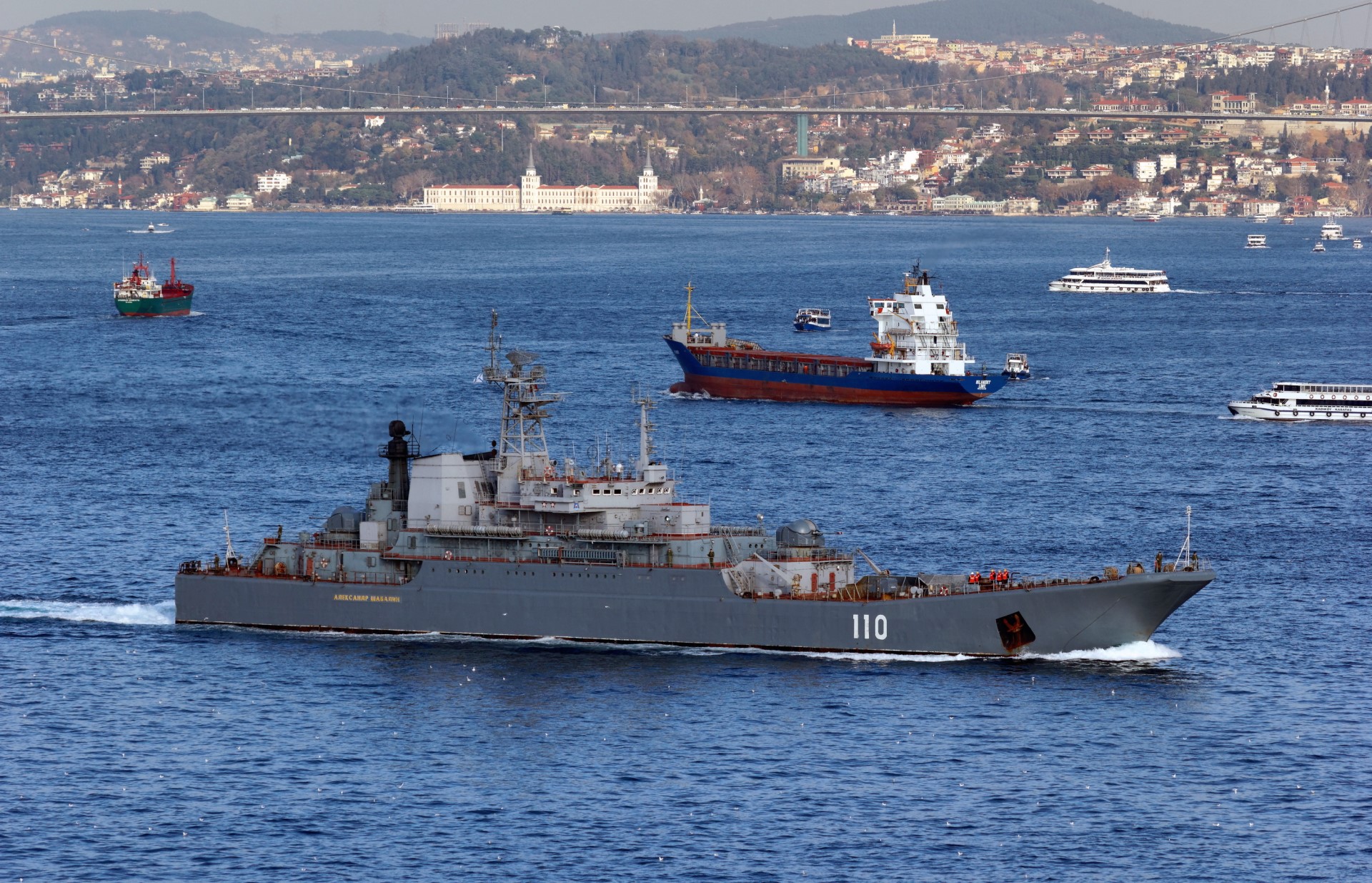Moscow’s attitude toward Montreux has long been complicated. But in general, Russia insists it must be maintained because of the restrictions that agreement places on naval vessels not belonging to Black Sea littoral states—both in terms of the number and size of ships that can transit at any one time and the total tonnage of such ships allowed into the Black Sea (see EDM, October 1, 2019, April 23, 2019, April 2, 2019).
If the proposed canal is in fact built and the Montreux Convention does not apply to it, Moscow fears that the North Atlantic Treaty Organization (NATO) or some other anti-Russian combination of states could introduce any amount of warships at any time into the Black Sea—which would both encourage other littoral states to look away from Moscow and ostensibly threaten Russian national security. Russian officials and commentators have long expressed those concerns. But now, with Erdoğan’s announcement, they are clearly alarmed. Their fears are reflected in a major recent article by Aleksey Baliyev, who writes regularly for Moscow’s influential Strategic Culture Foundation and Voyenno-Promyshelenny Kuryer, and by Andrey Areshev, a scholar at the Moscow Institute of Oriental Studies (Voyenno-Promyshelenny Kuryer, March 14).
As Baliyev and Areshev point out, the possibility of such a bypass canal has been discussed since the middle of the 16th century and was revived in the 1990s by Mustafa Bülent Ecevit, Türkiye’s prime minister at the time. Like other Turkish officials before and since who have pushed the idea, Ecevit argued that it was needed because the Bosporus-Dardanelles waterway was overcrowded. However, he raised hackles in Moscow by suggesting that such a canal could play an important “geopolitical” role in the wake of the demise of the Soviet Union. Ecevit died in 2004, but Erdoğan picked up his idea and succeeded in organizing preliminary studies for its construction in 2009 and 2012.
According to his current plans, the new canal between the two seas is to be located 25–30 kilometers west of Istanbul and could handle 85,000 ships annually, including some of the largest vessels on earth as well as military vessels, given that it is slated to be 150 meters wide and 25 meters deep. As such, there is some reason to accept Erdoğan’s predictions that the project will be as geopolitically influential as the Suez and the Panama canals were when constructed. This is especially so because, as Baliyev and Areshov write, since January 2018, Ankara has insisted the Montreux Convention will not apply to ships crossing the would-be Istanbul Canal.
And yet, the two Russian analysts argue, the current collapse in global oil prices and the decline in international trade threaten the long-term viability of this canal mega-project. Consequently, they contend, the only way the project will go forward is if NATO countries provide the financing. If the West does so, they continue, that will prove the Istanbul Canal is all about expanding the North Atlantic Alliance’s role in the Black Sea and not about economics, however much the Turks say otherwise.
Trending Now
Aleksey Yerkhov, Moscow’s ambassador in Ankara, raised the alarm about this possibility in December. He declared it was Moscow’s position that, even if the canal is built, Montreux must apply to passage through it. Moreover, the diplomat and the Russian government have given positive coverage to (and possibly covert support for) individuals in Istanbul and Türkiye who are opposed to the new canal either for environmental reasons or due to its enormous cost (Voyenno-Promyshelenny Kuryer, March 14).
In anticipation that Ankara, with the backing of the West, will go forward anyway, Baliyev and Areshev pointedly add that “certain Russian researchers are reasonably criticizing Moscow’s exclusive bet on Erdoğan and his command,” given Turkish plans for the canal and continuing hostility to the provisions of the Montreux Convention. As the two stress, there is no chance Montreux could be annulled without the canal; and thus, the construction of this canal must be slowed until Ankara acknowledges that naval passage through it would remain within Montreux limits (Voyenno-Promyshelenny Kuryer, March 14).
Baliyev and Areshov clearly reflect the thinking of many in the Russian capital, which suggests Moscow will take steps to block the canal either by stirring up opposition to it within Türkiye or by seeking to block foreign financing of the project. Some in Türkiye have had the desire to get out from under the restrictions of Montreux, which they feel were imposed as a condition of the restoration of its control over the Turkish Straits. This internal debate will intensify the more Türkiye moves toward building the new canal, which could then become a cause of new Moscow-Turkish and East-West tensions in the near future.
Read More:
- Portnikov: The break in Putin’s pipe
- Intermarium countries can no longer count on West to defend them against Russia, Honcharenko says
- Moscow laying groundwork for alternative patriarchate in Muslim Türkiye
- Ukraine and Türkiye Strike Historic Deal: Explained
- Ankara bans Turkish ships from entering Russian-occupied Crimea. Again.
- Türkiye seen seeking to reanimate GUAM as anti-Russian alliance

